Where do you want to go river fishing – Alabama, Mississippi, Kentucky, or Tennessee? That’s a trick question – you don’t have to choose! By fishing the Tennessee River, it doesn’t matter which state you’re in. This magnificent stretch of water spans all these states and promises a unique freshwater experience. And that’s why we’re here today to tell you all about it.

Not only is the Tennessee River the largest tributary of the Ohio River, but it’s also one of the ecologically most important river systems in the country. It’s home to over 200 fish species alone! Not to mention that it’s deeply rooted in history and each segment of the river is imprinted with the lives of those who went before us. So, be it a history lesson, sightseeing tour, or angling, the Tennessee River deserves your attention.
Naturally, we’ll focus on the underwater world and what Tennessee River fishing has in store for you. From trophy catches and their whereabouts to hotspots and regulations, we’ll leave no stone unturned. Let’s dive in.
What fish are in the Tennessee River?
You’ve already realized that there won’t be a shortage of fish species in the Tennessee River. But what exactly are the trophy catches we mentioned? Let’s take a look at them.
Largemouth Bass
Going after Largemouth Bass is a no-brainer when fishing the Tennessee River. Bass angling is so good here that the world’s authority on Bass fishing – the Bass Anglers’ Sportsman Society (B.A.S.S.) – regularly chooses hotspots along the river for their annual tournaments. And they’ve just announced that the 2023 Academy Sports and Outdoors Bassmaster Classic will be returning to the Tennessee River’s lakes and reservoirs!
But why are Largemouth Bass so in demand here? Let’s see what it means to go Tennessee River Bass fishing.

The popularity of Largemouth Bass stems from the fact that they’re the perfect freshwater game fish. They promise epic battles, tight lines, and unpredictable runs. And the Tennessee River is their ideal abode. They love underwater hideouts and the river offers great vegetation cover for them. Or at least that’s what they think…
You can make them blow their cover with crankbaits, jigs, and spinnerbaits. However, you don’t have to overthink your bait presentation since they’ll fall for a variety of lure types, sizes, and colors. The Tennessee River is a year-round Bass playground, with spring and fall being the most prolific seasons. Summer isn’t lagging far behind either, but night fishing might be more suitable during the hottest season of the year.
Striped Bass
Another highly valued trophy fish is Striped Bass. If anglers aren’t pursuing Largemouth Bass, they’re certainly testing their skills against Stripers. They’re formidable predators and awe-inspiring opponents. Plus, with the river overflowing with 20-pounders – and even 60-pounders aren’t uncommon – it makes perfect sense that Stripers are on the Tennessee River to-catch list.

Unlike their famous neighbors Largemouth Bass, Striped Bass prefer the open waters of lakes and reservoirs. This means that locating them isn’t as easy as is the case with Largemouth Bass. However, they frequent areas around the dams, so you can sometimes find them there. If you’d rather target them on the open waters, use a sonar device and give it a try with trolling.
Catfish
The Tennessee River holds a special place in Catfish anglers’ hearts. It ranks high on many Catfish fishing lists thanks to the impressive Blue and Flathead Catfish specimens that live here. And who wouldn’t like to score a “catzilla”? Snagging a 100-pounder isn’t just a dream, it’s reality when you’re fishing the Tennessee River. Just ask this fisherman.
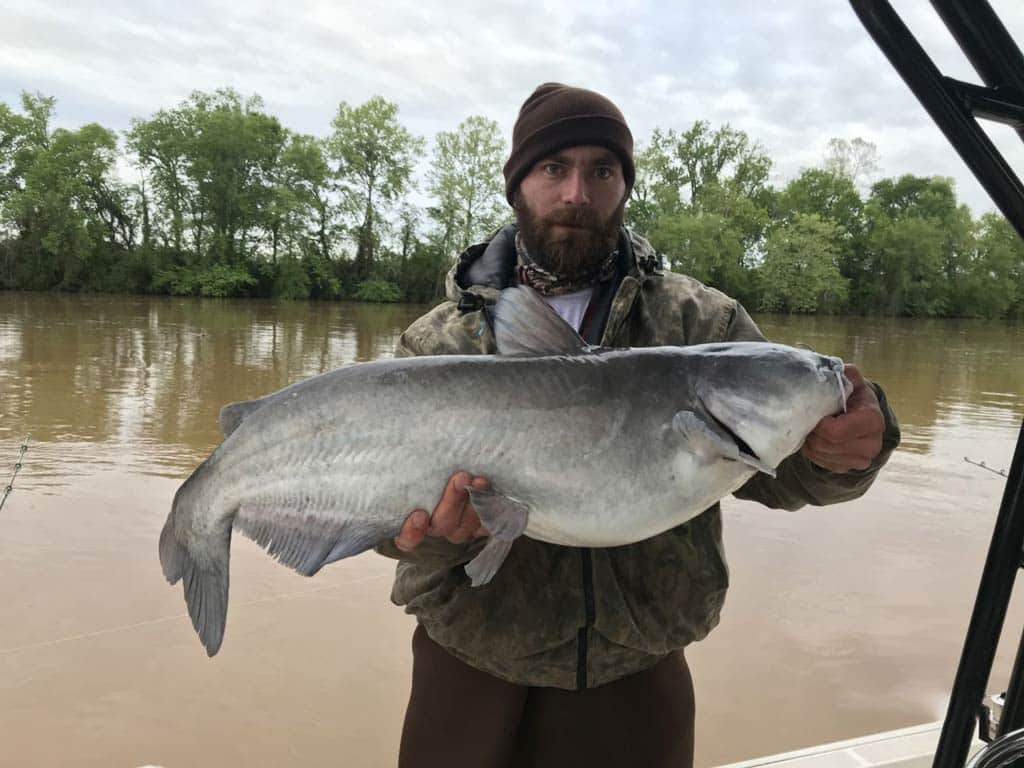
If you’re hooked on the idea of going after these giants, check out Guntersville Lake. This reservoir boasts incredible trophy Catfish. The ecosystem here is heaven for them. Ample supplies of shad, proper currents, and a variety of holes make this section of the Tennessee River an ideal home for Catfish. Apart from Huntsville, the Knoxville region is worth exploring, too.
Now that you know that quantity and quality are synonymous with Tennessee River catfishing, let’s see how you can tap into both. Be it spring, summer, fall, or winter, drifting meaty baits won’t fail you. These include anything from shad to chicken parts. To maximize your chances in spring, go to the main river channel. Due to the spawning season that starts in early June, summer fishing is more productive in the shallows near the bank.
Smallmouth Bass
Believe it or not, apart from being famous for its Catfish offer, the Tennessee River can brag about its hefty Smallmouth Bass specimens, too. If you’re wondering why to go after Smallmouth Bass when Largemouth Bass are bigger and more popular, here are a couple of things that work in Smallmouths’ favor.
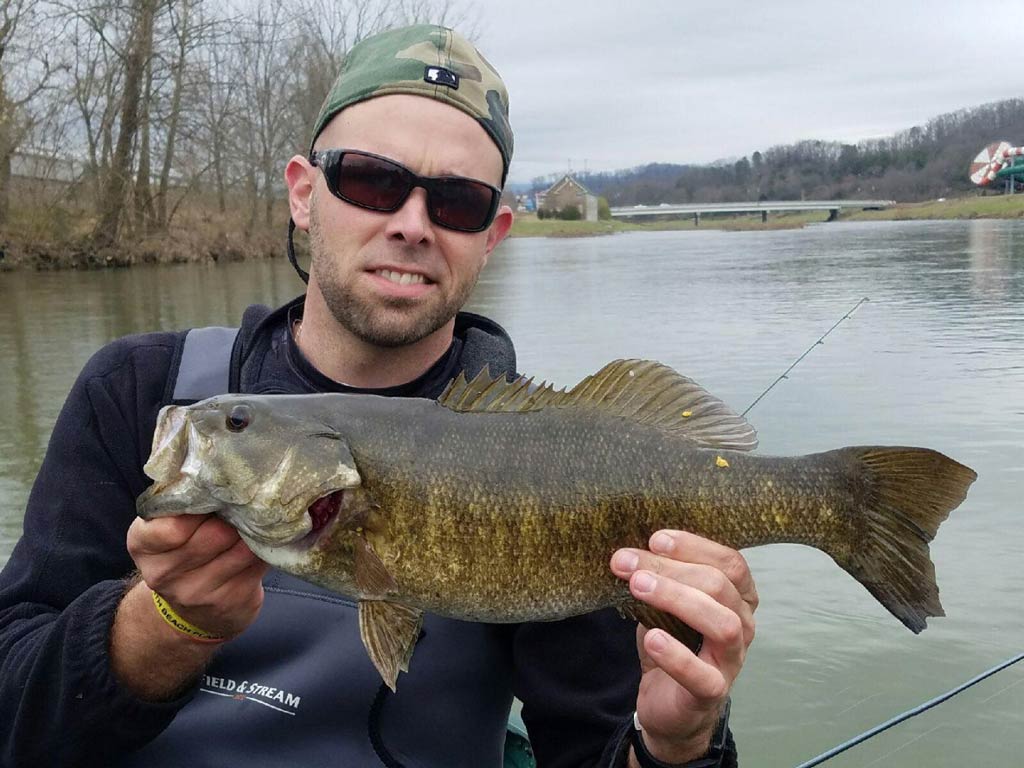
Smallmouth Bass might not be as big as their relatives, Largemouth Bass, but they can be more fun to catch. They’re more aggressive and feistier, so don’t be fooled by the word “small” in their name. Smallies won’t go down without a fight. Some anglers even claim that they fight as twice as hard as Largemouth Bass. How about that?
If you want to lure them your way, use minnows or crayfish. In lakes, you’ll find them around rocky shorelines, while in the river, they usually swim around underwater boulders and sunken structures. Similar to Largemouth Bass, Smallmouth Bass are mostly a spring and fall game fish.
… And More!
Even though this shouldn’t come as a surprise to you by this point, we have to say it – the Tennessee River is so much more than its headliners. Besides Largemouth Bass, Smallmouth Bass, Striped Bass, and Blue and Flathead Catfish, you can expect Trout. Out of all the Trout varieties, Brook, Brown, and Rainbow Trout are the most common.
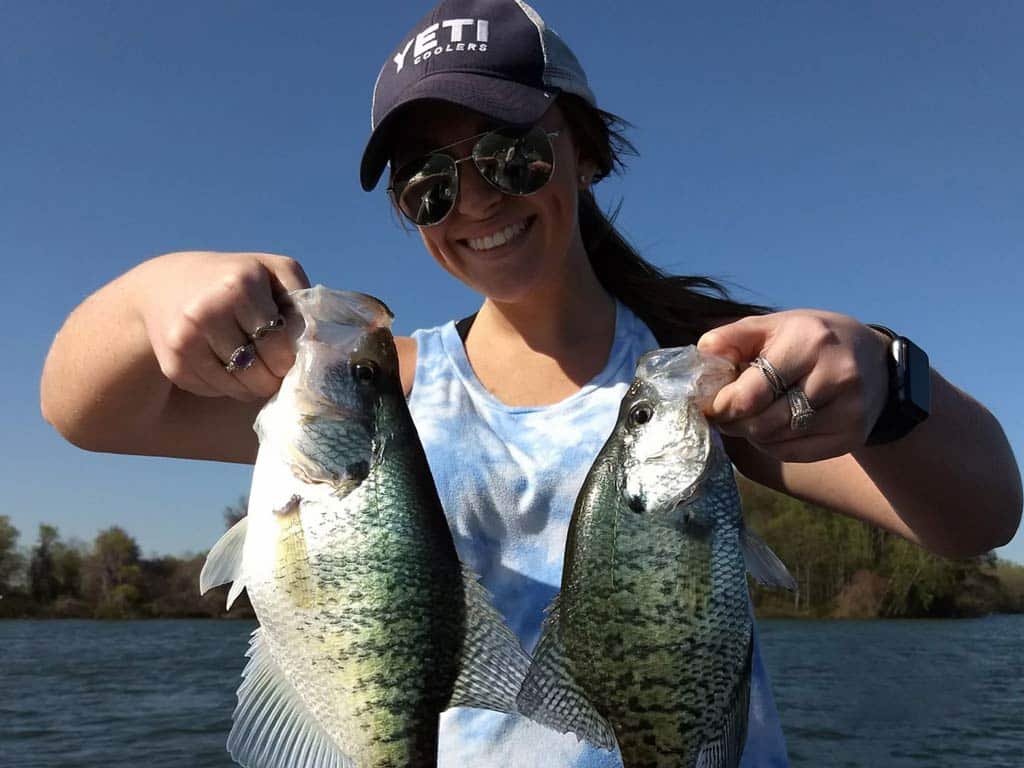
While not as widespread as Largemouth Bass, Walleye, Sauger, and Musky are equally entertaining fish to go after when fishing the Tennessee River. If you’re planning an angling trip with your family and the kids, Crappie and Bluegill could be interesting targets. All in all, the Tennesse River doesn’t lack fish species for everyone’s taste and skills.
When should I go Tennessee River fishing?
We’d say that any time is the right time to go Tennessee River fishing. And really, regardless of the time of year, you can wet your line in the river and its reservoirs and end up with at least a Panfish or two. Plus, Largemouth Bass are available year-round, too! But truth be told, some seasons are more prolific than others.

If you’d like to hit the jackpot with Smallmouth and Largemouth Bass, then spring and fall are your seasons. Spring is particularly productive, as this is when the Bass come closer to the shore and patrol the shallows during their spawning season. Catfish fishing, on the other hand, is more fruitful between spring and summer, though the peak of their activity aligns with their spawning peak in June. Winter fishing can be tough but some places (e.g. Guntersville and Pickwick Lake) will bless you with giant Bass.
How can I go Tennessee River fishing?
When a river is 652 miles long, the possibilities for exploring it are abundant. We’ll list three productive options for getting your fish on here below.
Charter Fishing
There’s no doubt that charter fishing is one of the best ways to fish the Tennessee River. No angling trip can surpass fishing aboard a purpose-built vessel with a licensed guide. Certified charter operators will provide you with everything you need for a successful fishing day. From the boat and equipment to expertise and local insight, Tennessee River fishing guides will give you an unforgettable day.
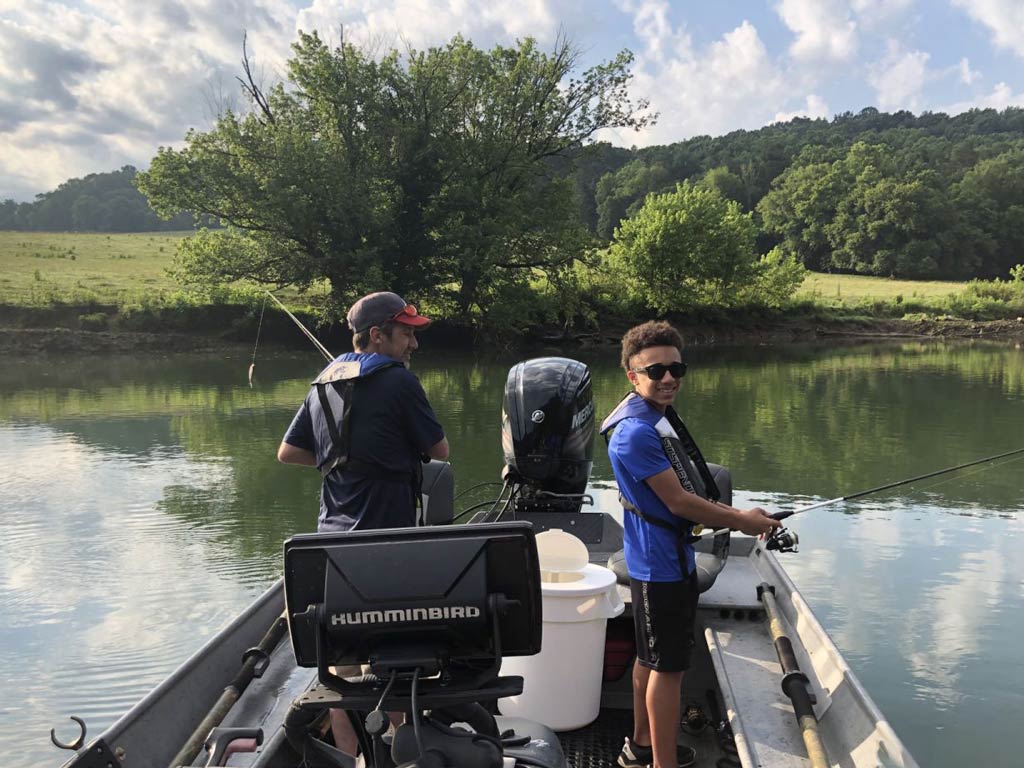
Having in mind that the river spans several states, it’s important to remember that fishing will vary from region to region. What works with Largemouth Bass in Alabama, might not apply to Tennessee Largemouth Bass fishing. The same goes for regulations – each state has different rules. For this reason, fishing with a local guide is your best bet.
Kayak Fishing
While charter fishing is the most convenient way to see the river’s full potential, it isn’t the only option. Kayak fishing might not offer the comfort and speed of a charter, but it gives you mobility and the chance to fish at your own pace. And thanks to the kayak’s noise-free properties, you can glide through the water in search of your trophy catch without spooking the fish.
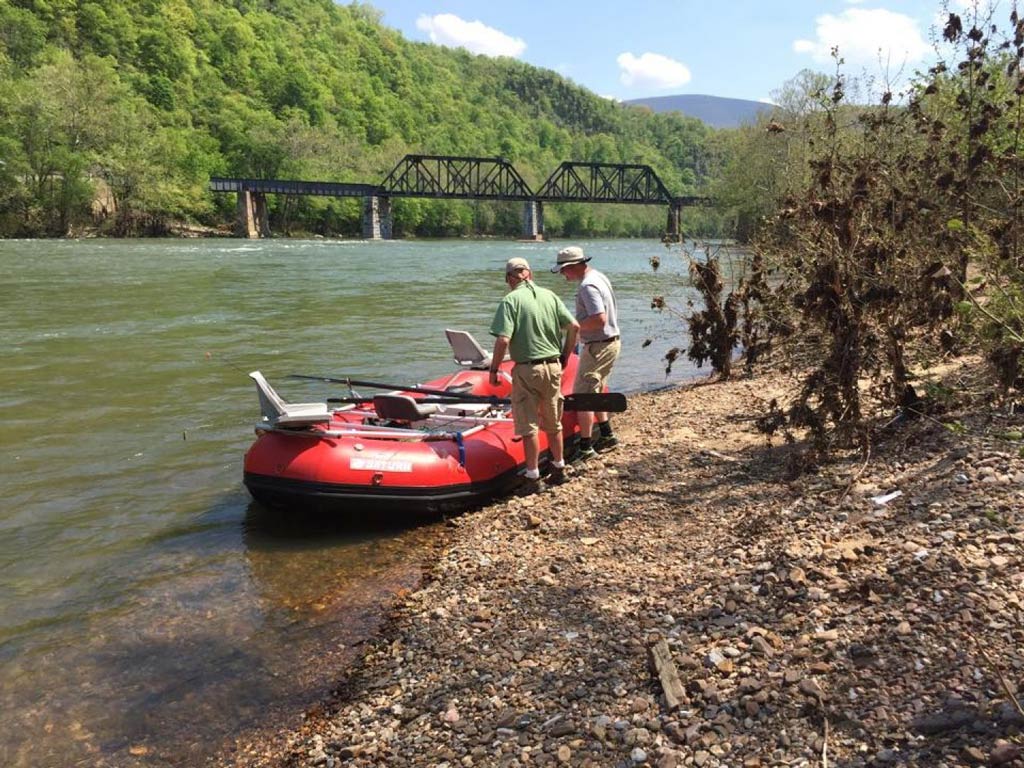
It’s obvious that kayak fishing has its advantages over charter fishing and vice versa. It really comes down to what makes you tick. However, you should be aware that kayak fishing can be challenging. You have to navigate, cast, reel in, and maintain your balance all at the same time. This is why kayak fishing is usually geared toward seasoned anglers. But it’s far from being exclusively reserved for pros! Beginners are welcome to give it a try, too.
Shore Fishing
With miles of shoreline at your disposal, shore fishing seems to be an obvious choice for angling on the Tennessee River. If your first instinct was to suggest conquering the river on foot, you were right. Not every inch of the shoreline will be easy to access, but you’ll have endless bank fishing spots to pick from.
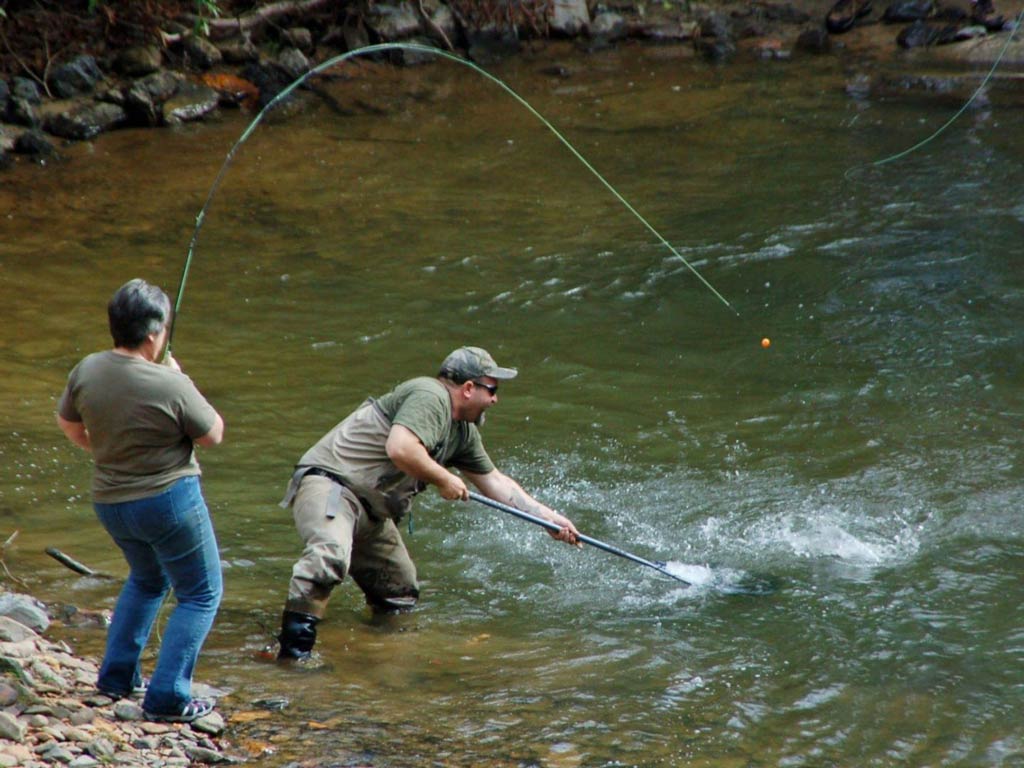
You don’t have to limit yourself to only casting from the shore. You can step in the water and practice wade fishing as well. Regardless of the grounds you’ll be fishing from, fly fishing will be the name of the game on the Tennessee River. And if you haven’t mastered this angling method yet, it’s high time you got the hang of it. So, hit the bank and see where it takes you. Tight lines!
Top Tennessee River Fishing Spots
The number of fishing spots on the Tennessee River is countless, and listing them all is mission impossible. We can, however, list a couple of well-known hotspots and you can take it from there. Since the majority of the river flows through Tennessee and Alabama, we’ll focus on these two states. So, here’s a quick overview of the best starting points.
Tennessee
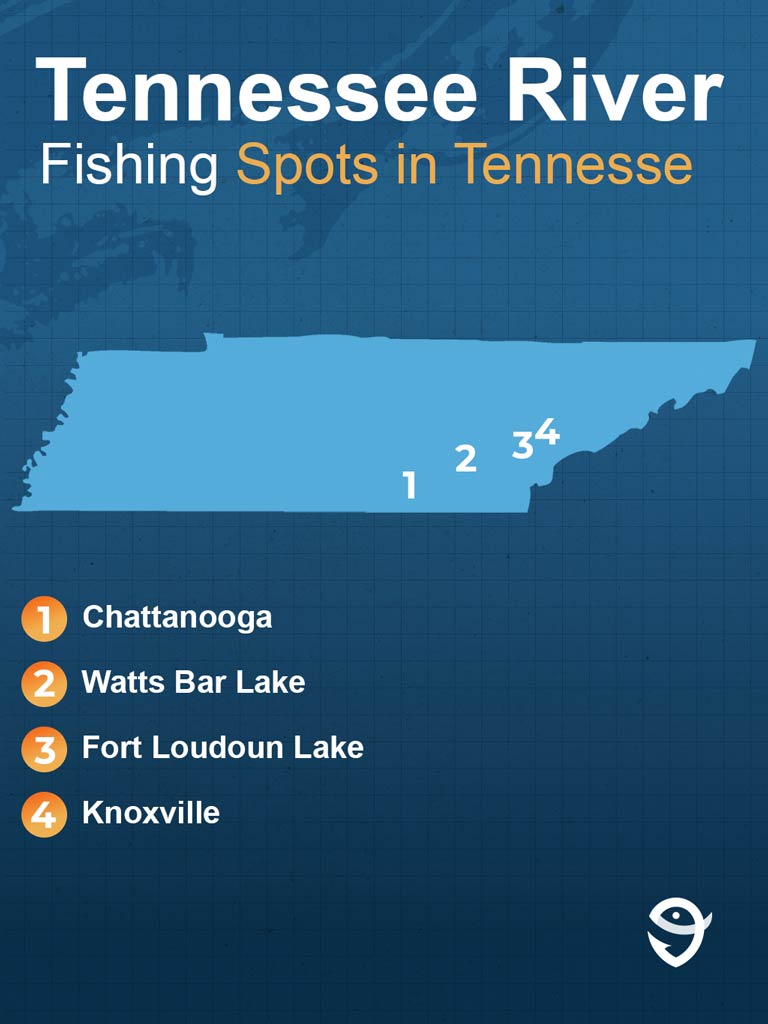
- Chattanooga. This city is located near the border with Georgia and is perfect for outdoor activities. The entire area is considered to be a premier Largemouth Bass fishery and the region boasts enviable Trout and Crappie corners, too. Decent Catfish and Sauger catches are also all but guaranteed.
- Watts Bar Lake. If you’re looking for a premium Catfish fishery then Watts Bar Lake might be a better option. This impoundment on Tennessee’s portion of the river encompasses almost 40,000 acres and more than 700 miles of shoreline. It has a lot of tributaries, so you can cross paths with anything from Bass and Catfish to Walleye and Muskie.
- Fort Loudoun Lake. While not as majestic as the Tennessee River’s tributary reservoirs, this mainstream lake is a great starting point for any aquatic recreation lover. This is your location if you’d like to catch Largemouth, Smallmouth, and White Bass. Though Bluegill, Crappie, and Catfish aren’t lagging far behind either.
- Knoxville. The Knoxville area is famous for its Striped Bass and Catfish angling opportunities. So, if you want to chase trophy Stripers or Catfish, this is where you should go. Spring is the perfect time to target them on the Tennessee River here.
Alabama
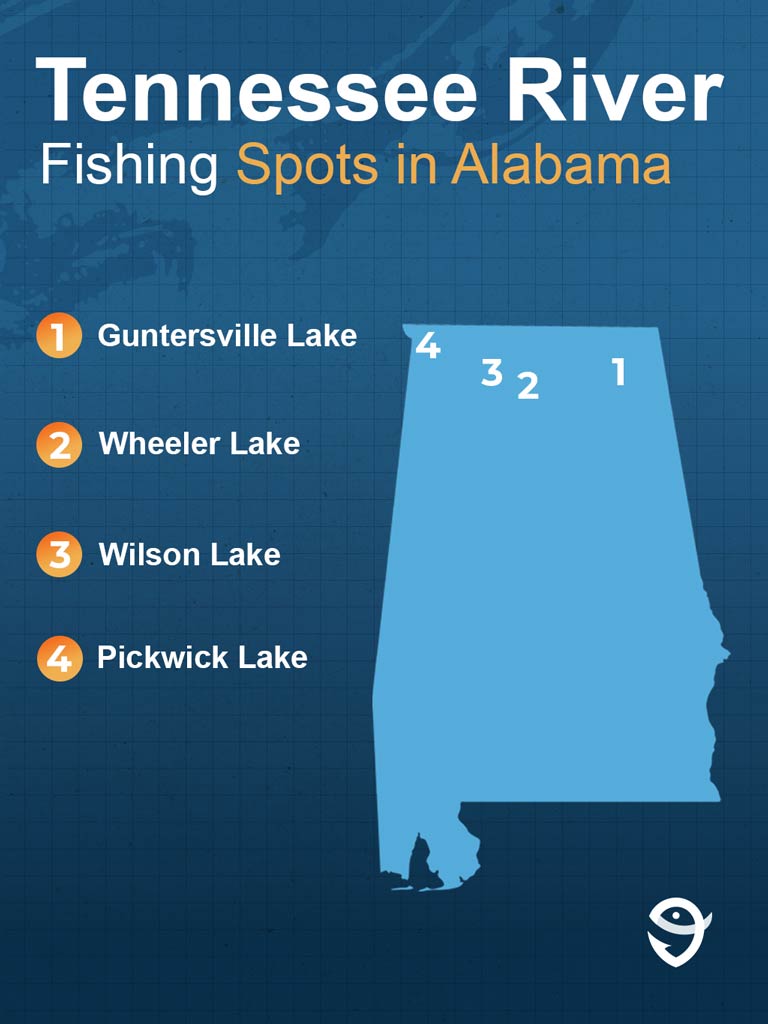
- Guntersville Lake. This is a must-fish destination if you’re exploring Alabama’s portion of the Tennessee River. It’s one of the most stable reservoirs, known for its excellent Largemouth Bass and Catfish offer. Guntersville Lake is one of the biggest lakes in the state – perfect for kayak angling and fishing tournaments.
- Wheeler Lake. Wheeler Lake might not be as famous as Guntersville, but it’s certainly special. It’s home to endangered species such as Palezone Shiner and record-breaking species such as Blue Catfish and Yellow Perch. It’s also a great Largemouth and Smallmouth Bass fishery, so you’ll have your hands full.
- Wilson Lake. Interestingly, while it’s the shortest impoundment on Alabama’s portion of the Tennessee River, this lake is the proud owner of the Alabama state record for Smallmouth Bass. So if you are after Smallies, this is the place to go.
- Pickwick Lake. This reservoir is a part of the Tennessee Valley Authority and spans three states (Alabama, Mississippi, and Tennessee). But most of it is in Alabama. An Alabama fishing license will allow you to fish throughout the lake and have a shot at landing Smallmouth Bass, Catfish, and Crappie.
Frequently Asked Questions

Tennessee River Fishing: Fishing That Transcends Borders
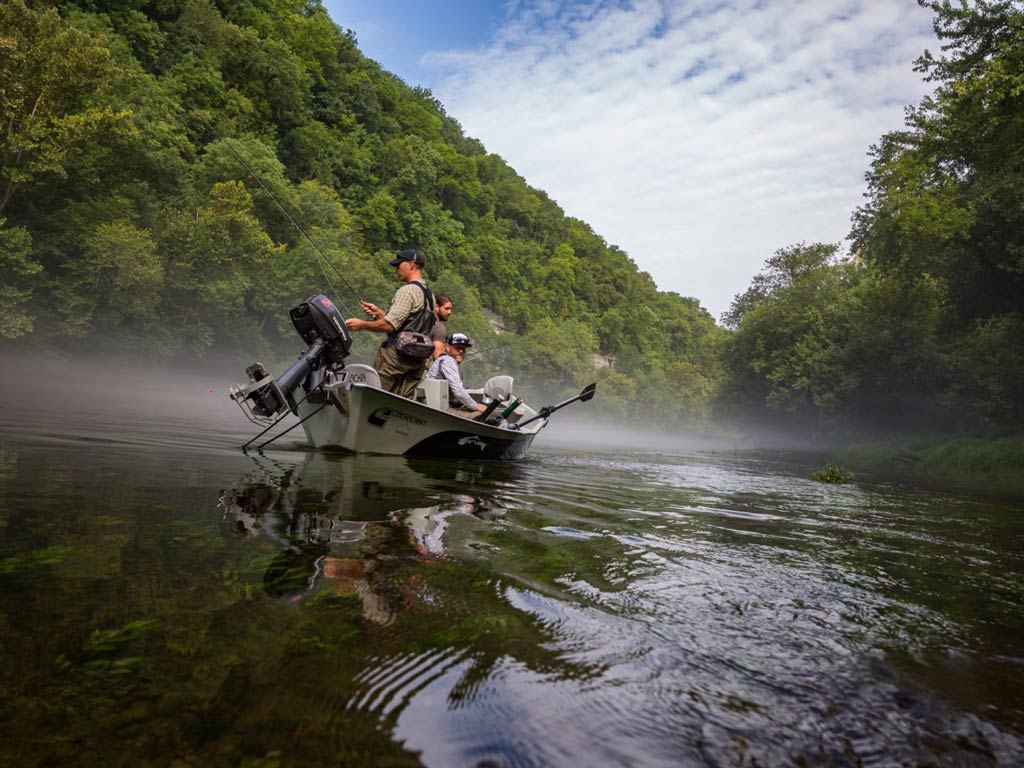
The Tennessee River isn’t the only breathtaking river that unites several states, but it’s certainly one that blurs border lines. It ranks so high on our freshwater fishing list, that you won’t mind where you fish. So, regardless of whether you’re angling in Alabama, Tennessee, or anywhere else, the Tennessee River will make you fall in love with fishing again.
Have you ever gone Tennessee River fishing? What section of the river did you explore? What did you catch? We’re all ears – hit the comment button below and tell us all about your Tennessee River experience.
The post Tennessee River Fishing: The Complete Guide appeared first on FishingBooker Blog.
https://ift.tt/3NHtm5G
0 Comments
Enregistrer un commentaire